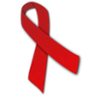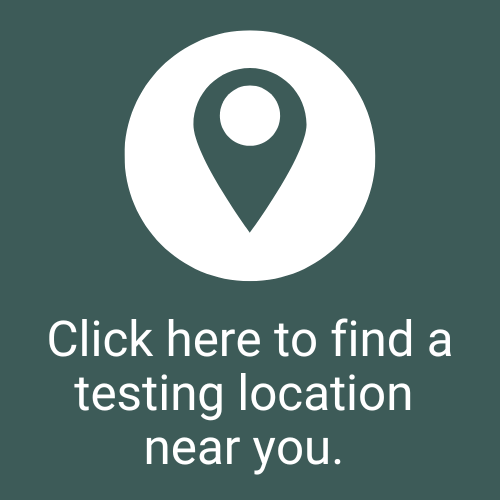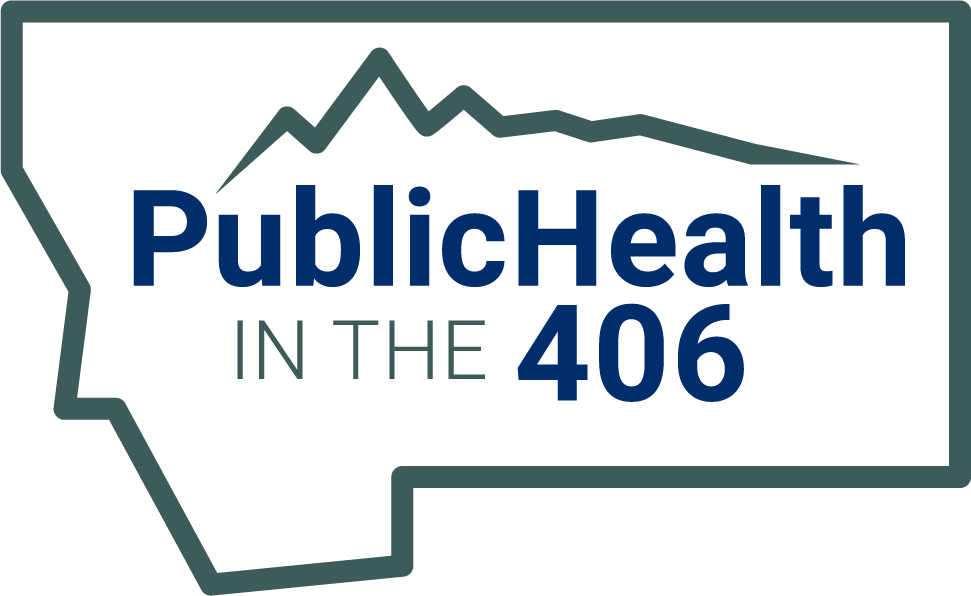 Montana Ryan White
Montana Ryan White
HIV Treatment Program
The Ryan White HIV/AIDS Program (RWHAP) provides a comprehensive system of care to ensure low-income people living with HIV/AIDS (PLWHA) receive optimal care and treatment. Ryan White Part B funding is used to support medical services, including medications, and support services. For more info: Ryan White & Global Services.
What We Provide

Montana has much to offer persons who are HIV+. We want you to stay healthy. Talk to your case manager who will help you connect to services. Click on any of the links below for a drop down description of services offered.
These are provided locally by county health departments and community based organizations throughout Montana and availability may vary by region. Service standards are available to ensure that quality care and services are being provided uniformly to all persons living with HIV/AIDS (PLWHA) in Montana.
The AIDS Drug Assistance Program (ADAP) is a major part of Ryan White Part B funding. The ADAP provides HIV and other medications for low-income, underinsured and uninsured individuals with HIV/AIDS at no cost to them. ADAP can also help people with HIV pay for health insurance premiums and copayments, deductibles or coinsurance.
ADAP helps ensure that people living with HIV and AIDS in Montana who are uninsured or under-insured have access to medication. ADAP pays the prescription costs for medication on the ADAP Formulary (PDF) for eligible individuals. For a complete list of ADAP pharmacies, see the ADAP Pharmacy List.
Eligibility Criteria
To be eligible for the ADAP program, a client must:
- Be a resident of Montana;
- Have a positive HIV/AIDS diagnosis;
- Have an annual Modified Adjusted Gross Income (MAGI) that does not exceed 500% Federal Poverty Level based on household size and income;
- Not be fully covered by Montana Medicaid or any other third-party payors.
Please note: If you are eligible for Medicaid, Medicare, IHS, or Veteran's Health benefits, you are not eligible to receive ADAP funded health insurance premium payment assistance.
How to Apply
Schedule an appointment with a Ryan White Medical Case Manager. Please refer to the list of Medical Case Management sites and contact the Ryan White Case Manager nearest you.
Maintaining Eligibility
Once a client is enrolled in ADAP they will be responsible for informing their Case Manager or ADAP of any changes to their income or residency status. Clients need to re-enroll in the ADAP program before their birthday month every year by submitting all of the required documents.
ADAP applicants who meet the eligibility criteria listed above must:
- Re-enroll into the program annually
- Re-enrollment is due every year on the applicant's birthday
- Applicants must re-enroll in-person with a Ryan White Medical Case Manager
- Re-enrollment may be completed up to 45 days before an applicant's birthday
- Recertify for the program bi-annually
- Recertification occurs six months after the applicant's birthday
- Applicant's will receive a Six Month-Verification Form in the mail
- The verification form asks the applicant if key eligibility information remains unchanged
- If there are no changes to the applicant's eligibility information, the applicant may recertify for ADAP by completing and submitting the verification form to their Case Manager
- If there are changes to the applicant's eligibility information, the applicant must recertify for ADAP in-person with a certified ADAP Enrollment Worker
Individuals who are enrolled in ADAP are eligible for:
- Affordable Care Act (ACA) Premium Payment (must be cost-effective)
- Private Insurance Premium Payment (must be cost-effective)
- Employment-based Insurance Premium Payment (to employer only)
- Medicaid Cash Option Payment (must be cost effective)
- Medicare Part D Premium Payment (must be cost effective)
- Medication co-payment assistance (must use ADAP pharmacy)
- Full Cost ADAP Formulary Drug Payment (must be uninsured)
ACA and private premium payment assistance pay monthly health insurance premiums for ADAP clients. Individuals receiving ACA and private premium assistance are also eligible for medication co-pay and medical out-of-pocket cost benefits, which covers outpatient medical out-of-pocket costs that count towards the client's health insurance policy's deductible.
Employment-based insurance premium assistance pays for an ADAP client's portion of their employer-based insurance premiums. Payments are made directly to employers, resulting in a zero deduction from client’s paychecks. Individuals receiving employment-based insurance premium assistance are also eligible for medication co-pay and medical out-of-pocket cost benefits, which covers outpatient medical out-of-pocket costs that count towards the client's health insurance policy's deductible.
Medicaid cash option payment assistance pays a cash payment to the state to meet their “spend down” (rather than meeting it by paying incurred medical bills) for those who are categorically aged, blind and disabled who would otherwise be over the income limit to qualify for Medicaid if they have high medical expenses. Once one has spent their income down to the income limit, Medicaid will kick in for the remainder of the spend down period, which is one month in Montana.
Medicare Part D premium payment assistance helps pay Part D insurance premiums for individuals who are enrolled in ADAP and a Medicare Part D prescription drug plan. Individuals receiving Medicare Part D premium payment assistance are also eligible for the medical out-of-pocket cost benefit, which covers medication co-payment costs that count towards the client's health insurance policy's annual out of pocket maximum.
Medication co-payment assistance helps all insured individuals enrolled in ADAP, regardless of any premium assistance they may or may not be receiving, pay their medication co-payments.
Full cost ADAP Formulary drug payment assistance pays full cost of any drug listed on the Montana ADAP formulary for those that have no insurance. Proof of ineligibility for insurance, including Medicaid is required.
ADAP Forms
To apply or see if you’re eligible for ADAP Assistance, please refer to the list of Medical Case Management Sites and contact the Ryan White Case Manager nearest you.
Emergency Financial Assistance (EFA) provides limited one-time or short-term payments to assist an HRSA RWHAP client with an urgent need for essential items or services necessary to improve health outcomes, including: utilities, housing, food (e.g. groceries/food vouchers), transportation, medication not covered by an AIDS Drug Assistance Program or AIDS Pharmaceutical Assistance, or another HRSA RWHAP-allowable cost needed to improve health outcomes. EFA must occur as a direct payment to an agency or through a voucher program.
To establish the need for the service and demonstrate the emergency nature of the request, a
proof of hardship will be conducted and demonstrated by one or more of the following:
- A significant increase in bills;
- A recent decrease in income;
- High unexpected expenses on essential items;
- The cost of shelter more than 30% of the household income;
- The cost of utility consumption more than 10% of the household income;
- Inability to obtain credit necessary to provide for basic needs and shelter; and
- A failure to provide emergency financial assistance that will result in danger to the
- physical health of client.
Limitations include:
- Direct cash payments to clients are not permitted.
- No funds may be used for any expenses associated with home ownership or the ownership or maintenance of a privately-owned motor vehicle.
- Short-term temporary housing and emergency rental assistance will be transitional in nature, no more than ten (10) days or $1,500 a year per client household. The purpose of assistance is to keep an individual or family in a long-term, stable living situation; therefore, the approval must be accompanied by a housing strategy plan that addresses transitioning to stable housing. Rent is limited to $1,500 in assistance within a contract year per client household. No funds may be used for any expenses associated with the ownership or maintenance housing (i.e. taxes, mortgage payments, etc.).
- Essential Utilities is limited to $1,000 within a contract year per client household.
- Medication is limited to $1,000 within a contract year per client who due to an emergency cannot access ADAP, or other RW medication programs in the state.
- Food vouchers limited to $1,000 annually
- Excluding the short-term or emergency housing assistance limit of $1,500, a combination of all other types of EFA is also limited to $1,000 annually
To apply or see if you’re eligible for EFA, please refer to the list of Medical Case Management Sites and contact the Ryan White Case Manager nearest you.
Early Intervention Services (EIS) is the combination of the following four services:
- Targeted HIV testing to help the unaware learn of their HIV status and receive referral to HIV care and treatment services if HIV positive.
- Recipients must coordinate these testing services with other HIV prevention and testing programs to avoid duplication of efforts
- HIV testing paid for by EIS cannot supplant testing efforts paid for by other sources
- Referral Services to improve HIV care and treatment services at key points of entry and directs clients (in person, via telephone and written/other type of communication) to needed core medical or support services.
- Access and linkage to HIV care and treatment services such as HIV Outpatient/Ambulatory Health Services, Medical Case Management, and Substance Abuse Care
- Outreach Services and Health Education/Risk Reduction related to HIV.
- Outreach Services are:
- Coordinated with local and state HIV prevention outreach programs to avoid duplication of effort;
- Targeted to population known through local epidemiologic data, review of service utilization data or strategic planning or HIV infection and/or exhibiting high-risk behavior;
- Designed to provide quantified program reporting of activities and outcomes for local evaluation of effectiveness;
- Planned and delivered in processes, known to be at disproportionate risk for HIV infection;
- Health Education/Risk Reduction is related to the education of clients living with HIV about HIV transmission and how to reduce the risk of HIV transmission. It includes sharing information about medical and psychosocial support services and counseling with clients to improve their health status. Topics may include:
- Outreach Services are:
-
- Education on risk reduction strategies to reduce transmission such as pre-exposure prophylaxis (PrEP) for clients’ partners and treatment as prevention; and
- Education on health insurance coverage options, health literacy and Treatment Adherence education.
Food Bank/Home Delivered Meals refers to the provision of actual food items, hot meals, or a voucher program to purchase food. This also includes the provision of essential non-food items that are limited to the following:
- Personal hygiene products
- Household cleaning supplies
- Water filtration/purification systems in communities where issues of water safety exist
- Other limitations include:
- Household appliances
- Pet foods
- Other non-essential products
To apply or see if you’re eligible for Food Bank/Home Delivered Meals services, please refer to the list of Medical Case Management Sites and contact the Ryan White Case Manager nearest you.
Health Education/Risk Reduction is the provision of education to persons living with HIV about HIV transmission and how to reduce the risk of HIV transmission. It includes sharing information about medical and psychosocial support services and counseling with clients to improve their health status. Topics covered may include:
- Education on risk reduction strategies to reduce transmission such as pre- exposure prophylaxis (PrEP) for clients’ partners and treatment as prevention
- Education on health care coverage options (e.g., qualified health plans through the Marketplace, Medicaid coverage, Medicare coverage)
- Health literacy
- Treatment adherence education
Housing Assistance Services provides transitional, short-term, or emergency housing assistance to enable a client or family to gain or maintain outpatient/ambulatory health services and treatment, including temporary assistance necessary to prevent homelessness and to gain or maintain access to medical care.
Limitations include:
- Ryan White Housing Assistance must be the payor of last resort
- Cannot receive HOPWA and Ryan White housing assistance simultaneously
- Must be limited to transition, short-term or emergency housing assistance
- Duration of assistance cannot exceed 24months
To apply or see if you’re eligible for Ryan White Housing Assistance, please refer to the list of Medical Case Management Sites and contact the Ryan White Case Manager nearest you.
Housing Service Standard
Medical Case Management, including Treatment Adherence is the provision of a range of client-centered activities focused on improving health outcomes in support of the HIV care continuum.
Activities provided under this service category may be provided by an interdisciplinary team that includes other specialty care providers. Medical Case Management includes all types of case management encounters (e.g., face-to-face, phone contact, and any other forms of communication).
Please refer to the list of Medical Case Management Sites and contact the Ryan White Case Manager nearest you.
Non-Medical Case Management Services (NMCM) provide guidance and assistance in accessing medical, social, community, legal, financial, and other needed services. NMCM services may also include assisting eligible HIV + persons to obtain access to other public and private programs for which they may be eligible, such as Medicaid, Medicare Part D, State Pharmacy Assistance Programs, Pharmaceutical Manufacturer’s Patient Assistance Programs, other state or local health care and supportive services, or health insurance Marketplace plans. This service category includes several methods of communication including face-to-face, phone contact, and any other forms of communication deemed appropriate by the RWHAP Part recipient.
To apply or see if you’re eligible for NMCM services, please refer to the list of Medical Case Management Sites and contact the Ryan White Case Manager nearest you.
Outreach Services’ purpose is identifying People Living with HIV (PLWH) who either do not know their HIV status, or who know their status but are not currently in care. As such, Outreach Services provide the following activities: 1) identification of people who do not know their HIV status and/or 2) linkage or re-engagement of PLWH who know their status into HRSA RWHAP services, including provision of information about health care coverage options.
Because Outreach Services are often provided to people who do not know their HIV status, some activities within this service category will likely reach people who are HIV negative. When these activities identify someone living with HIV, eligible clients should be linked to HRSA RWHAP services.
Outreach Services must:
- use data to target populations and places that have a high probability of reaching PLWH who
- have never been tested and are undiagnosed,
- have been tested, diagnosed as HIV positive, but have not received their test results, or
- have been tested, know their HIV positive status, but are not in medical care;
- be conducted at times and in places where there is a high probability that PLWH will be identified; and
- be delivered in coordination with local and state HIV prevention outreach programs to avoid duplication of effort.
Limitations include:
- Outreach services, including HIV testing, cannot be delivered anonymously
- Outreach services must not include outreach activities that exclusively promote HIV prevention education
Outreach Service Standard




